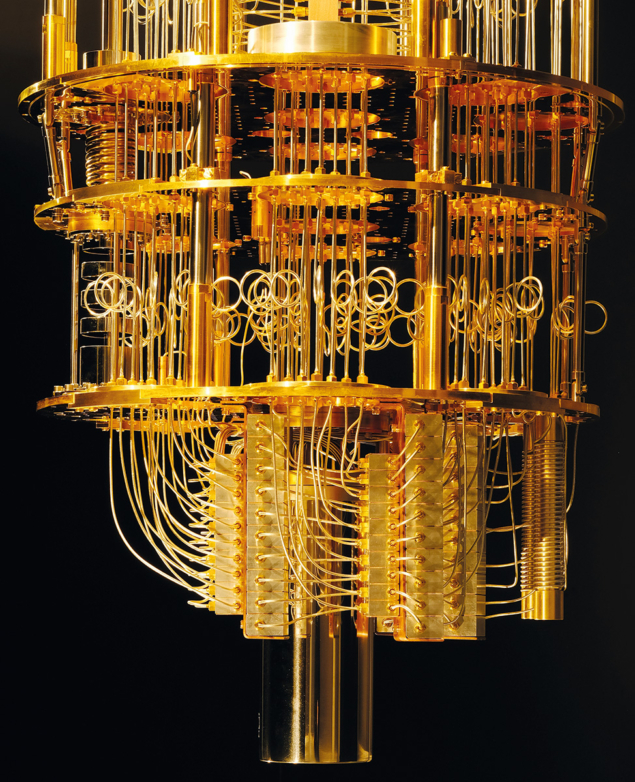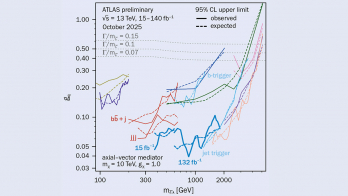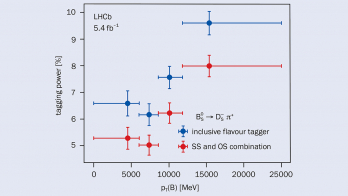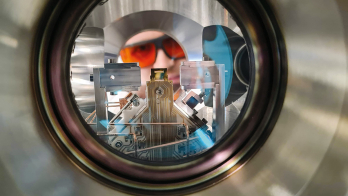
Researchers from CERN, DESY, IBM Quantum and more than 30 other organisations have published a white paper identifying activities in particle physics that could benefit from quantum-computing technologies. Posted on arXiv on 6 July, the 40 page-long paper is the outcome of a working group set up at the QT4HEP conference held at CERN last November, which identified topics in theoretical and experimental high-energy physics where quantum algorithms may produce significant insights and results that are very hard or even not accessible by classical computers.
Combining quantum and information theory, quantum computing is natively aligned with the underlying physics of the Standard Model. Quantum bits, or qubits, are the computational representation of a state that can be entangled and brought into superposition. Once measured, qubits do not represent discrete numbers 0 and 1 as their classical counterparts, but a probability ranging from 0 to 1. Hence quantum-computing algorithms can be exploited to achieve computational advantages in terms of speed and accuracy, especially for processes that are yet to be understood.
“Quantum computing is very promising, but not every problem in particle physics is suited to this model of computing,” says Alberto Di Meglio, head of IT Innovation at CERN and one of the white paper’s lead authors alongside Karl Jansen of DESY and Ivano Tavernelli of IBM Quantum. “It’s important to ensure that we are ready and that we can accurately identify the areas where these technologies have the potential to be most useful.”
Neutrino oscillations in extreme environments, such as supernovae, are one promising example given. In the context of quantum computing, neutrino oscillations can be considered strongly coupled many-body systems that are driven by the weak interaction. Even a two-flavour model of oscillating neutrinos is almost impossible to simulate exactly for classical computers, making this problem well suited for quantum computing. The report also identifies lattice-gauge theory and quantum field theory in general as candidates that could enjoy a quantum advantage. The considered applications include quantum dynamics, hybrid quantum/classical algorithms for static problems in lattice gauge theory, optimisation and classification problems.
With quantum computing we address problems in those areas that are very hard to tackle with classical methods
In experimental physics, potential applications range from simulations to data analysis and include jet physics, track reconstruction and algorithms used to simulate the detector performance. One key advantage here is the speed up in processing time compared to classical algorithms. Quantum-computing algorithms might also be better at finding correlations in data, while Monte Carlo simulations could benefit from random numbers generated by a quantum computer.
“With quantum computing we address problems in those areas that are very hard – or even impossible – to tackle with classical methods,” says Karl Jansen (DESY). “We can now explore physical systems to which we still do not have access.”
The working group will meet again at CERN for a special workshop on 16 and 17 November, immediately before the Quantum Techniques in Machine Learning conference from 19 to 24 November.
Further reading
A Di Meglio et al. 2023 arXiv:2307.03236.








